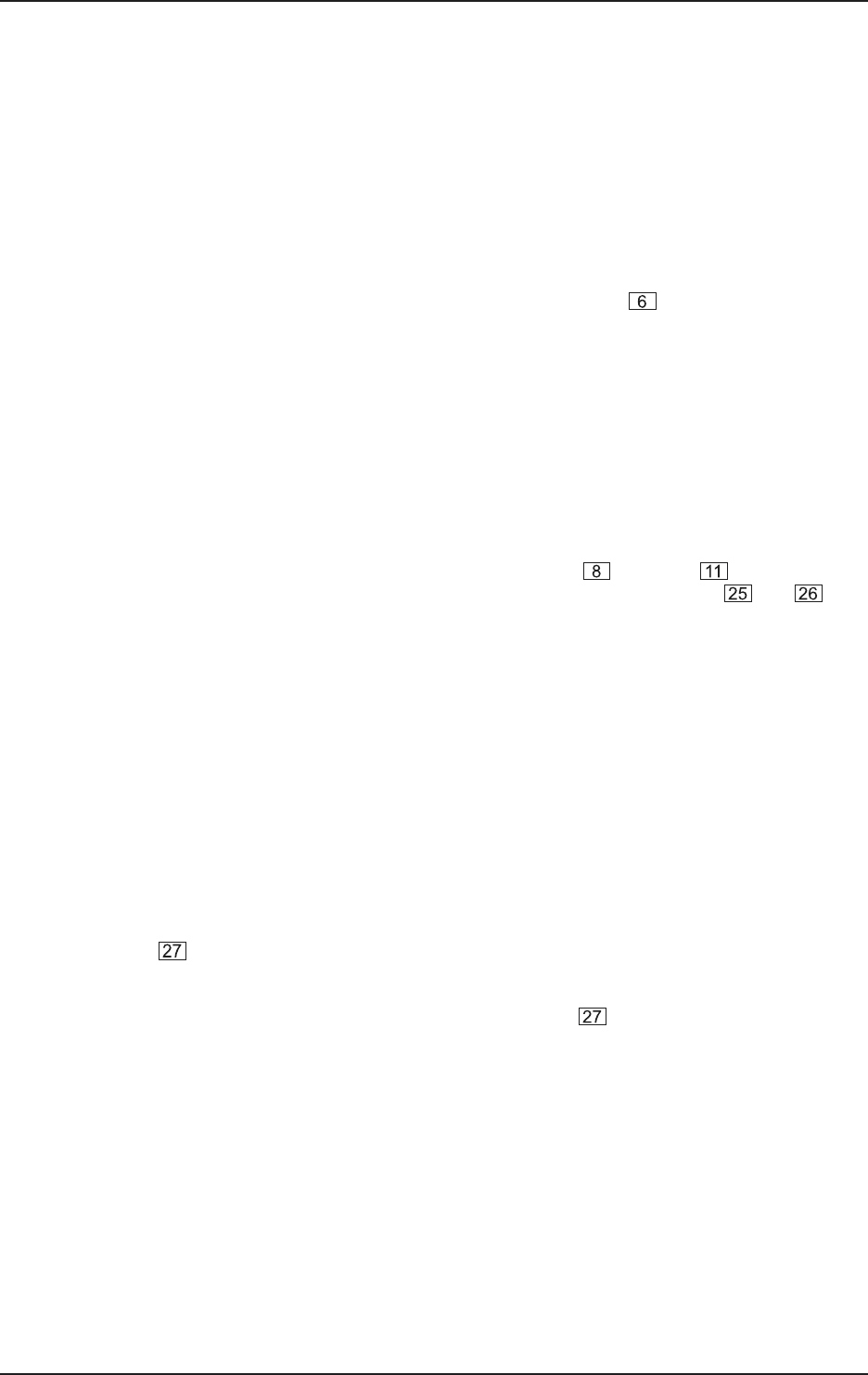
10
EURODESK MX2442A
4. STEREO INPUT CHANNELS
The stereo input channel consists of almonst the same controls as the mono input channel except for the
input, the EQ and the BALANCE control. For further information on the remaining controls, please refer to
section 3 MONO INPUT CHANNELS.
Every stereo channel has two line level inputs on 1/4" jacks. If only the left input is used, it will work as mono
channel.
+ This feature is disabled, if the inputs and outputs of the EURODESK are wired permanently to
a patchbay.
The channel input sensitivity is variable between +/- 20 dB by adjusting GAIN , enabling a perfect match
with all common line-level sources including multitrack tape outputs, MIDI and other electronic instruments
and effects units, all of which are normally designed to operate at either -10 dBV or +4 dBu.
4.1 Input Level Setting
Input level setting works in the same ways as on mono channels (see section 3.1).
4.2 Equalizer
All stereo input channels are fitted with four-band, fixed-frequency EQ. Bands 1 and 4 are shelving, while bands
2 and 3 have a peaking response, with their Q set at 2 octaves.The upper and lower shelving controls
have their turnover frequencies fixed at 12 kHz and 80 Hz, whereas the midrange controls and have
their bell center frequencies set at 3 kHz and 500 Hz. All bands have up to 15 dB of cut and boost, with a center
detent for off.
+ A stereo equalizer is generally preferable to using two mono equalizers when EQ-ing a stereo
signal, as often discrepancies between left and right settings can occur.
4.3 Aux Sends
These are the same as for mono channels (see section 3.3). Please note that first the stereo signal is turned
into a mono sum before entering aux send.
4.4 Routing & Muting
The only difference here from the mono channel described in 3.4 is in the substitution of the pan control by the
BALANCE control ( ).
As long as a channel is run in mono, there is no difference at all.
In stereo operation however, this control functions as a BALANCE control , determining the relative balance
of the left and right channel signals which are being sent to the left and right main mix, or odd and even
subgroup buses. For example, with the BALANCE control turned fully clockwise, only the right portion of the
channels stereo signal will be routed to the selected buses, the left portion is faded out.
4. STEREO INPUT CHANNELS


















